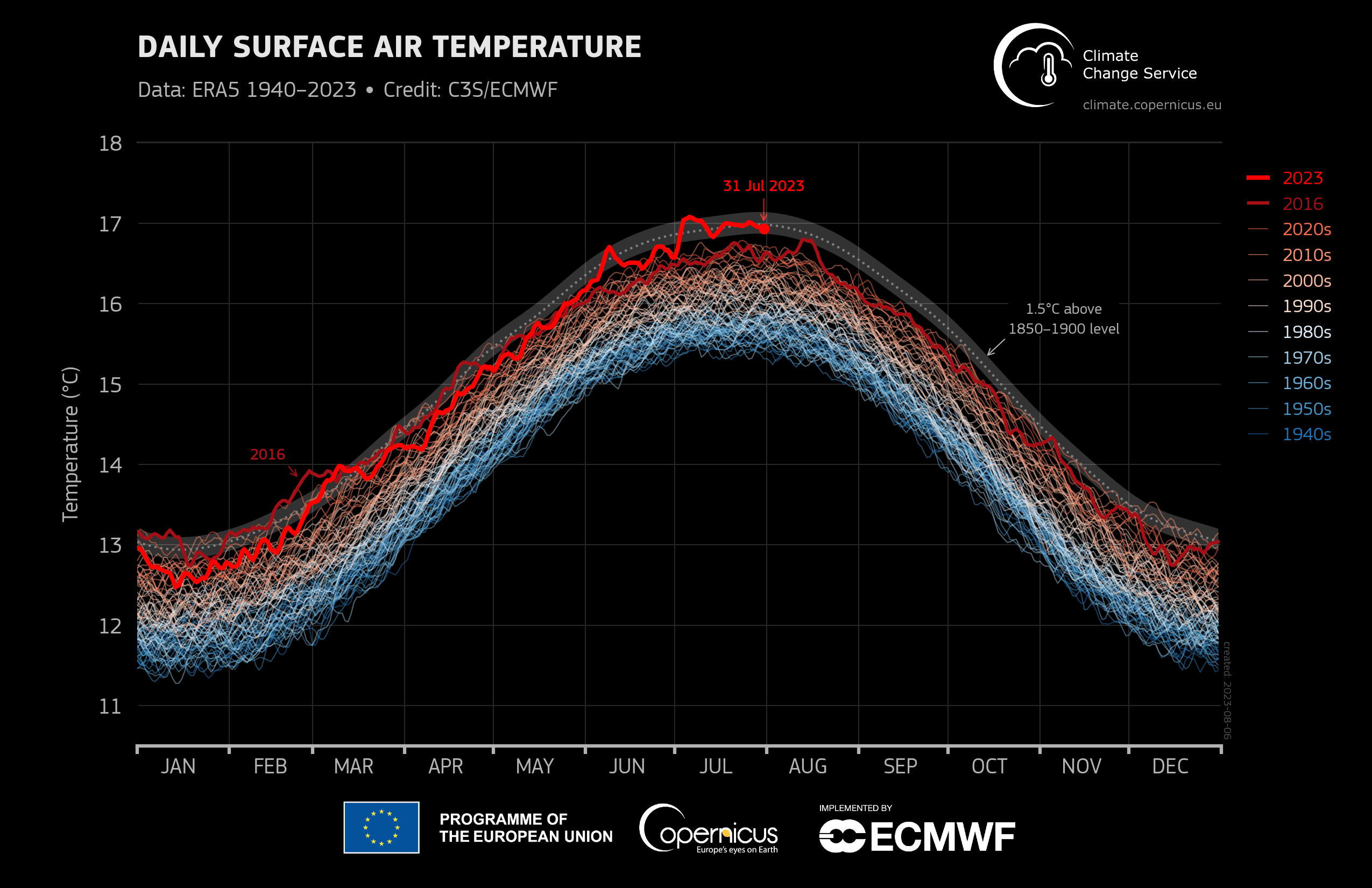July Was The Hottest Month Ever Recorded On Earth
Now that it's over and all the numbers have been tallied up, July will go on record as the hottest month ever recorded on Earth, according to the Europe-based Copernicus Climate Change Service. According to the C3S, global temperatures in July reached a new record average of 16.95 degrees Celsius, which was well above the previous record of July 2019, which measured 16.63 Celsius.
Further, Copernicus Climate Change Service says that it estimated similar temperatures of 16.96 degrees Celsius. As such, it isn't that surprising to see the temperatures reaching this new maximum. The service says that the rising temperatures can be attributed to several things, including increased sea surface temperatures.
While the new record was only six-tenths of a degree more than the previous, that wide of a margin of chance is actually a very big deal. The climate service says it could have dire consequences for our ongoing climate change crisis. If reports about possible doom loop climate events are accurate, too, we could have a massive problem looming ahead of us.

"These records have dire consequences for both people and the planet exposed to ever more frequent and intense extreme events," Copernicus deputy director Samantha Burgess shared in a statement. Heat waves have broken out across the world, leading to death and sickness for thousands.
Further, these extended heat periods also contribute to the ongoing rise of climate change issues, such as the melting of important ice shelves and glaciers in Antarctica, Greenland, and other places. We've even seen these rising temperatures causing ancient permafrost to melt, allowing scientists to revive ancient worms and long-dead viruses.
Even more dire is that the scientists say these raised temperatures seen in the hottest month recorded on Earth aren't going away. Sure, scientists are looking for ways to reverse climate change, but without any real solution in place, these dire temperature records will only continue to rise, leading to terrible consequences for our planet.
